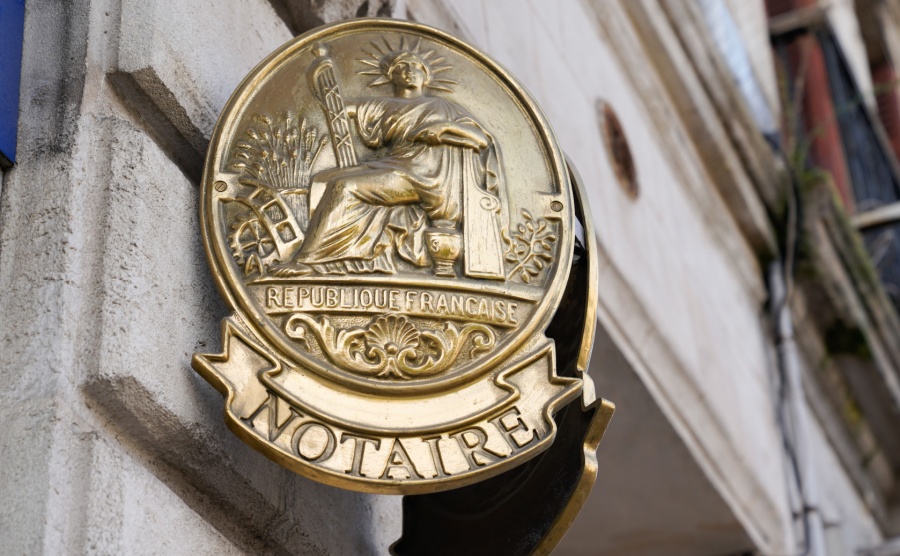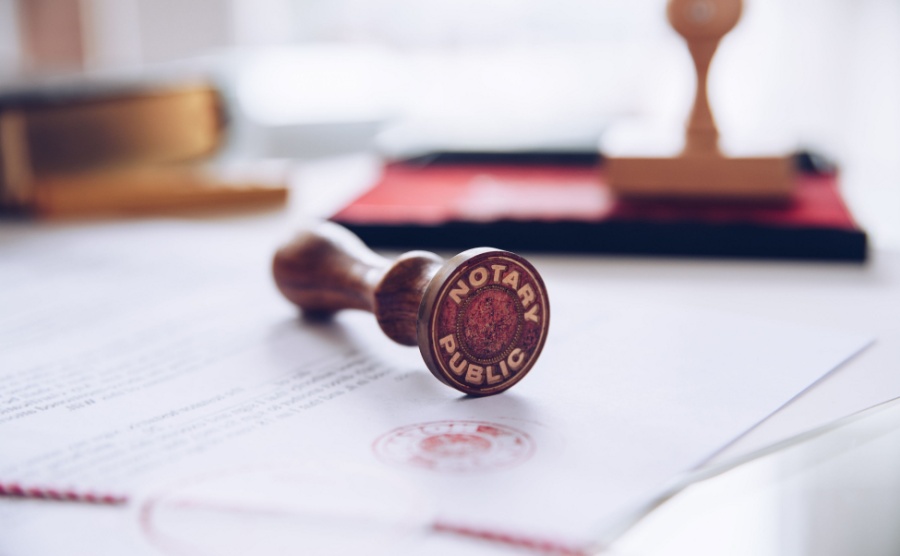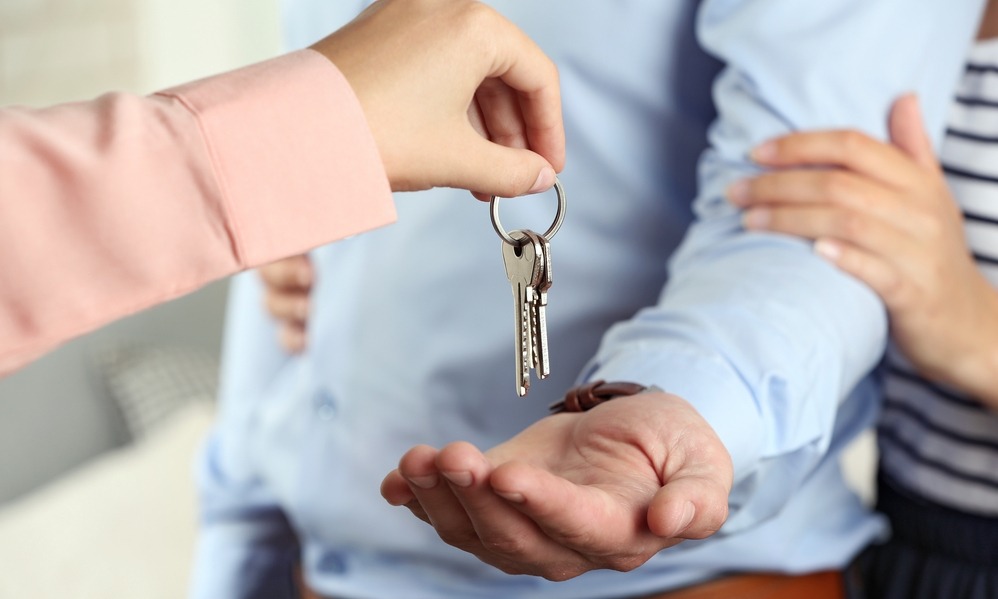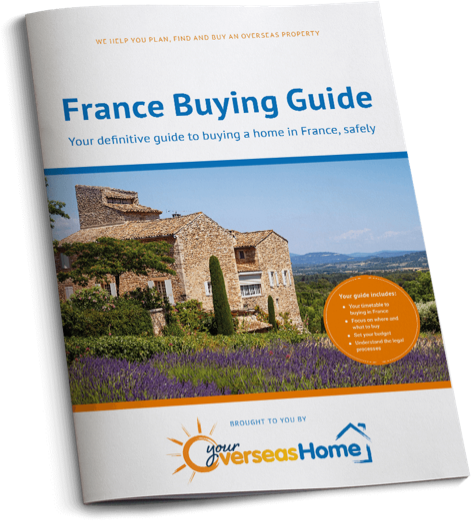In the UK when you want to buy a property, you need a lawyer and an estate agent. In France, there’s a third party involved and they are called notaries.
In this article, we’ll reveal everything you need to know about the role of a notaire in France.
Find homes in France via our property portal.

The official seal of the notaries in France
The role of the notaire in France
When looking for information on a sometimes confusing topic, it helps to go straight to the source. That’s why we asked our trusted partners at Beaux Villages Immobiliers to outline the role of notaries in France. Here is what they said:
“The notaire is the necessary guardian of property transactions. Notaires in France play a key role in property transactions, acting as neutral legal experts. They are appointed by the Minister of Justice to ensure the legality and validity of the transaction, draft and authenticate contracts, collect taxes and oversee the transfer of ownership.”
The notaire is the necessary guardian of property transactions.
In a nutshell, therefore: the notary’s job is to oversee all property transactions in France. They do not act for the buyer or the seller and their primary role is to ensure the sale abides by French law. This has been the case for hundreds of years and is a legal requirement in every property transaction. The notaire is also well-versed in other areas of the law such as inheritance, wills, marriage contracts etc.
Thus it is important to learn at the outset of your property search in France that there is always a notaire appointed. Nothing can happen without them! There can be two notaries involved if required by either party but the fees will be the same, simply split between the two.

Each licensed notaire will have their own stamp, which is essential for properties to sell in France
What does the notaire do?
The notaire looks after all the aspects of the sale. At the outset, your estate agent will send the notaire all the details of both buyer and vendor, their mandate for the sale of the property and the diagnostic reports as well as the “titre de propriété” to prove the vendor owns the property. Any other details such as a list of any furniture which may be included in the sale should be passed over too. The notaire will then prepare the “compromis de vente” which is the first sales contract, similar to the exchange of contracts in the UK.
Once an offer has been agreed, the compromis de vente document will contain all relevant details including any mortgage or loan offer and any clauses on which the sale of the property may depend. The notaire will require copies of any permissions granted to the vendor for any additions or changes to the property, eg the installation of a swimming pool. If there are chimneys in the property, a certificate proving they have been swept will be necessary.
The notaire will normally ask for a 5 or 10% deposit from the buyer or “depot de garantie” at this point although this is not mandatory.
After the signature of the compromis de vente, the notaire will carry out the searches and inform the local mairie of the pending sale. The searches will include checking all aspects of the property, any issues in the locality, making sure any mortgage offer is in line with the value of the property etc. The searches can take up to 3 months.
Download your free copy of our France Buying Guide for insight into the buying process
When does completion take place & what’s next?
The “Acte de Vente”, equivalent to completion, normally takes place about 3 months after the signature of the compromis de vente. This can be done remotely if the vendor and/or purchaser has signed a Power of Attorney giving the notaire authorisation to sign on their behalf.
The notaire needs to satisfy himself that all the paperwork is in order and if there is a mortgage or loan in place for the purchaser, they will have the relevant bank release the money a few days before the final signature. He will also ask the purchaser to make sure the full funds are in the notary’s client account in good time ahead of completion.
Once everything is in place, the Acte de Vente is signed by both parties (or by the notaire on their behalf) and the keys are handed over to the new purchaser.
Should I worry about having to hire a notaire?
No, usually in France, estate agents partner with specific local notaries who they onboard to the property buying/selling process. Estate agents in France are typically a lot more involved in the process than they are in the UK, and they often become friends with buyers after they sell a home, due to how useful and friendly they are.
Sometimes, a seller might use a known notaire, in which case you don’t need to worry.

Notaries are essential in the French buying process
What is the cost of the notaire?
The fees of the notaire are set by the government and are not negotiable. Thus, whoever you choose to be the notaire, the cost will be the same. It is worked out on the value of the property being sold. It is best to budget for a fee of 8-10% of the cost of the property. If you are buying a new-build property, the cost is less at around 2-3%.
The fees are paid by the purchaser.
The notary’s fees are estimated and once the property completion is done, there may be a sum to be paid back. The notaire will do the final account at this point and let you know.
Note that the notaire receives around 15% of the fees; the rest goes to the state. Note also that all funds go into the notary’s client account, to be held until the sale is complete.
What about property taxes?
The notaire will work out what taxes are due on the property and take all of this into account on completion of the sale. Once it is done, they will inform the tax office who in turn will attribute the taxes to the new owner.

Getting the keys to your new home can be very exciting
Is it advisable to have legal representation as well?
It is important to have legal representation as a foreign buyer in France, although not mandatory. We advise employing the services of a bilingual lawyer, familiar with French property law, to act for you. Although the notaire takes care of the transactions, your adviser will help you understand the whole process and look out for any matters which you may not have thought of.
The property buying process in France is however relatively straightforward and the buyer is well protected. You can rest assured that you can feel safe in the hands of the notary.
You might also like:
- Moving to France: A comprehensive guide
- New data suggests French property boom is here
- A-Z of French for property buyers















